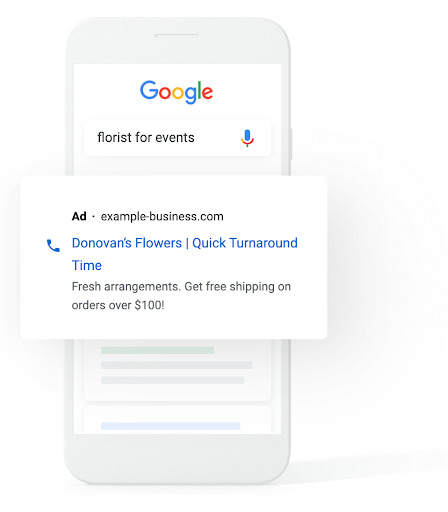While working out the marketing plans for your business-to-consumer (B2C) enterprise, you might wonder if now is a good time to set aside part of your budget for influencer marketing. Here are some compelling reasons why you should consider it and how to get the best results if you take that route.

Consider Your Audience and Platforms
While deciding if influencer marketing is right for your company, it’s best to determine which groups you want to target. Then, figure out if they spend time on the platforms that influencers typically use.
For example, if most of your audience is over 70 and previous internal studies at your company showed they rarely use social media, influencers may not be the best choice. However, if you’re trying to appeal to Gen-Z consumers who love TikTok and Instagram, many of them probably follow influencers they know and trust.
Remember too that influencer marketing does not exclusively occur on social media. If your protein bar brand appears at a virtual health summit, you might hire a respected nutritionist to appear at an event workshop. They could gently suggest that your products are great for people who want or need to eat more protein.
Another critical factor is how much an influencer you hire is likely to affect the target audience’s opinions. If your research shows that people associated with your products and company are also familiar with a particular influencer, hiring that person could give your brand more credibility. Conversely, if your audience does not know the influencer or historically does not respond well to that kind of advertising, B2C influencer marketing may not provide the outcomes you want.
Choose Your Overall Goals
Influencer marketing is not the best approach for every B2C brand. It all comes down to what you’re trying to achieve. For example, some of the common reasons you might get an influencer’s help are improving your reputation, increasing the company’s brand awareness, or generating more sales or traffic.
Maybe you’re at the point where you’ve narrowed down your options to one potential influencer but haven’t yet signed the contract with them. In that case, review data on the influencer’s previous results and compare them to the campaigns you want to run. Did they have measurable success with getting the kind of outcomes you hope to achieve?
It’s also helpful to look at statistics about influencer marketing as a whole and see what kinds of outcomes you could expect. For example, one recent report indicated an average 57% increase in impressions per post for global brands that worked with influencers in 2020.
Consider that anything an influencer does could reflect on your company. That’s why it’s a good idea to research whether the person has previously done controversial things. If so, they could help you meet goals, but also risk people getting the wrong idea about your company due to the association.
Specify How the Influencer Will Help Your Company
Perhaps you’re worried about having a lack of control over what an influencer says or does regarding your brand. Fortunately, it’s easy to specify the nature of the company-influencer relationship within a legally binding contract. That document can be an excellent court defense, provided it is thorough and specific. Hopefully, you’ll never get to the point of litigation. However, a law firm with experience in marketing contracts can ensure there’s no ambiguity.
You can use the contract to go into specifics about the influencer’s relationship with your company. First, what type of content will the influencer produce to help your business? It could range from Instagram livestreams to photos and videos. Consider how they usually engage with their fans and which formats are most likely to resonate with your customers.
Another thing to stipulate is whether the content must include a hashtag, call to action or other direct mention of your brand. One handy thing about having the influencer use hashtags is that they’re easy to track, and you can measure the associated metrics to determine success levels. Moreover, the contract should state how often you want the influencer to produce content for your company.
Ensure that the content irons out matters of payment, too. Will you pay the influencer a flat rate per post, or are some parameters related to success? In what format will it arrive and how often? Including details like these in your contract sets the stage for a strong relationship because everyone understands the expectations they must meet.
Think About How Influencer Marketing Could Give a Competitive Advantage
Another thing to evaluate while deciding whether to hire a B2C influencer is if doing so could make your business more competitive. Do you notice that many other companies in your industry use them successfully? If so, an influencer could help you stay visible in the marketplace.
A 2020 survey asked marketing professionals about their plans and how COVID-19 affected them. The results showed that respondents are devoting more of their budgets to influencers and are currently spending 7.5% on them. That’s a 1% gain over statistics from the previous year. Moreover, the respondents intend to boost the influencer budget to 12.7% in three years.
The research also highlighted that B2C companies, in particular, are ramping up influencer marketing investments. The statistics in the previous paragraph were averages. However, companies associated with B2C products spend the most of all other sectors surveyed on influencer marketing now (11.2%). However, in three years, that amount should rise to 19.9% of the budget.
Perhaps your B2C brand has numerous retail stores, but traffic has significantly decreased due to COVID-19 restrictions. An influencer could make your company more competitive by drawing attention to your online presence and reminding people they can use your ecommerce site to get what they need. Alternatively, maybe your company wants more social media momentum, and getting it would increase competitiveness. In cases like these and others, influencers can directly contribute to marketplace traction and visibility.
Decide How Much You Want to Spend
You may initially define influencers as people who have hundreds of thousands of social media followers and are known worldwide. Many of them do fit that description. However, it’s probably out of the question for your company to hire them without a huge budget.
Luckily, there’s a growing trend in the use of micro influencers. People use varying definitions for them, but they typically have 10,000 followers or less. Micro influencers charge much less for their services than more well-known people. It might make the most financial sense for your company to work with them for now.
However, there are other advantages associated with micro influencers, too. For example, many are more likely to have unique styles because they don’t need to appeal to so many people. Many of these influencers also specialise in niches. If your company sells things similar to the products a micro influencer already talks about regularly, people are more likely to see the content as authentic and worth reading.
When you decide how much to spend on an influencer marketing campaign, consider that the associated costs may be more reasonable than anticipated. You may also find it helpful to approach a company that helps businesses get started with this type of marketing. Find out what kind of results you might expect from your budget.
There’s no universal answer for whether your company should set aside money for influencer marketing. However, it’s becoming more popular for B2C companies to take that route. It could be a great way to keep pace with competitors. Let the tips here guide your way forward.






